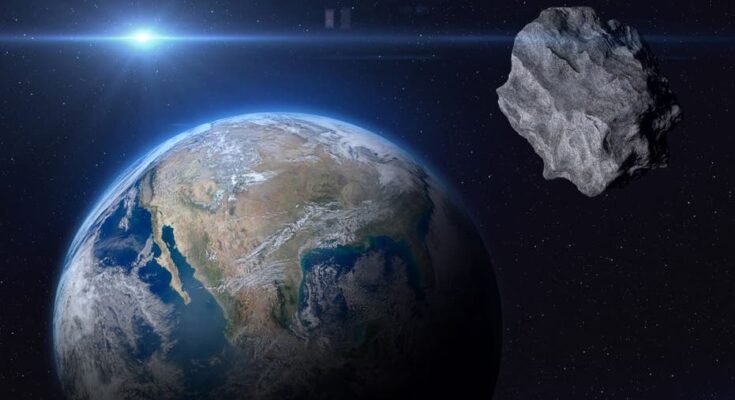The National Aeronautics and Space Administration (NASA) is monitoring a massive asteroid that is expected to come close to Earth on Tuesday night.
The rocky object, which has been named 2024 ON, has a diameter of 950 feet, according to NASA’s Asteroid Watch Dashboard. NASA has deemed the asteroid “stadium-sized” and reported it would be 621,000 miles from Earth on Tuesday night, which is considered relatively close.
Although the asteroid will be close enough to Earth to be deemed a “potentially hazardous object,” it is unlikely that Earth will be impacted.
The asteroid is one of five that will pass by Earth over the next two days, but the other rocky objects will not come nearly as close as 2024 ON. The four asteroids will be between 1.1 to 3.9 million miles away from Earth, and three of the asteroids measure roughly 51 feet in diameter, which is the size of a house.
FLASHBACK: STUDY SAYS ASTEROID THAT KILLED THE DINOSAURS ALSO CAUSED A GLOBAL TSUNAMI
One of the asteroids, named 2013 FW13, measures around 510 feet in diameter and will pass by Earth on Wednesday.
NASA’s Asteroid Watch Dashboard tracks “asteroids and comets that will make relatively close approaches to Earth.” According to a data table, 2024 ON was traveling at around 8.8 kilometers per second on Tuesday morning, which is nearly 20,000 miles per hour.
NEWLY DISCOVERED DINOSAUR SPECIES IS ONLY GREEN FOSSIL EVER GOUND, TO BE DISPLAYED IN LOS ANGELES
“The dashboard displays the date of closest approach, approximate object diameter, relative size and distance from Earth for each encounter,” the organization’s website explains.
“The dashboard displays the next five Earth approaches to within 4.6 million miles (7.5 million kilometers or 19.5 times the distance to the moon); an object larger than about 150 meters that can approach the Earth to within this distance is termed a potentially hazardous object.”
Fox News Digital reached out to NASA for additional information.
